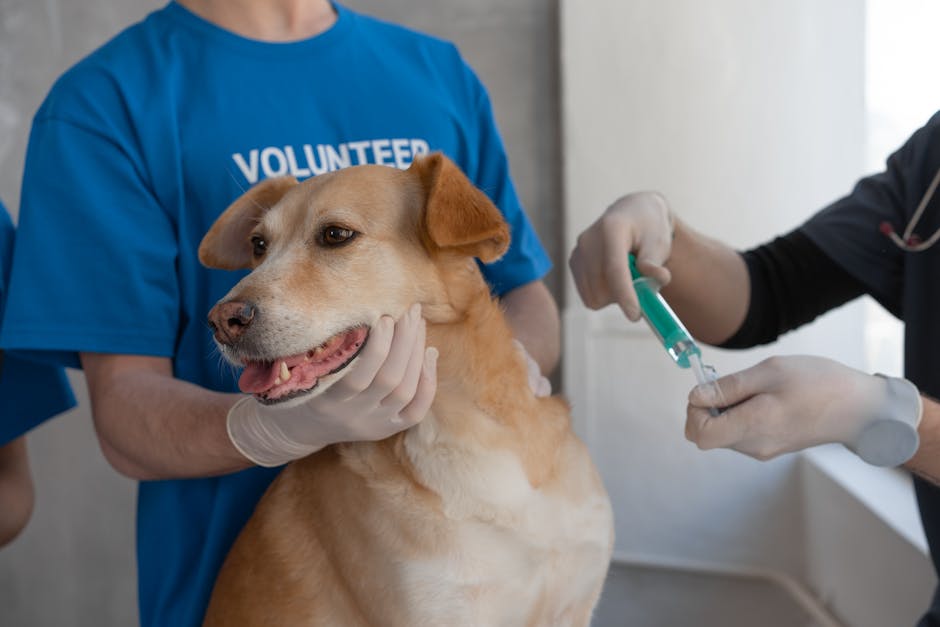Understanding Pet Dental Health
The Importance of Dental Care in Pets
Caring for your pet’s teeth is crucial for their overall health and well-being. As a pet owner, I know that neglecting dental care can lead to serious consequences for our furry friends. Dental issues not only cause discomfort but can also affect their quality of life. Regular dental check-ups are essential to catch any issues early and prevent them from escalating. Proper dental care, including brushing their teeth regularly and providing dental treats, can help maintain healthy teeth and gums for our pets.
Common Dental Issues in Dogs and Cats
When it comes to our beloved dogs and cats, dental problems are more common than we realize. As a pet enthusiast, I understand the significance of being aware of these issues. Dental diseases such as periodontal disease, tooth decay, and gingivitis can cause pain and discomfort for our pets. Keeping an eye out for symptoms like bad breath, excessive drooling, and difficulty eating can help us identify these issues early. By addressing common dental problems promptly with the help of a veterinarian, we can ensure our pets have strong teeth and live a happy life.
Signs of Dental Problems in Pets
Recognizing Dental Pain and Discomfort
- Noticing signs of dental problems in pets is essential for their well-being. Some common indications of dental issues include pawing or rubbing at the mouth, reluctance to eat hard food, and favoring one side of the mouth while chewing. Pets may also show signs of discomfort when their mouths are touched or exhibit changes in their chewing habits. Being vigilant and observing these behaviors can help in identifying potential dental problems early on.
Bad Breath as a Warning Sign
- Bad breath in pets can be more than just an unpleasant odor; it can also signal underlying dental issues. Foul-smelling breath is often a sign of bacteria buildup in the mouth, leading to dental problems like periodontal disease. Regularly checking your pet’s breath and noting any unusual odors can aid in detecting oral health issues promptly. If your pet has persistent bad breath, it’s important to consult a veterinarian for a thorough dental examination to address any potential problems.
Teeth, Tails, and Tenderness: Steps to Dental Hygiene

Establishing a Dental Care Routine
To ensure optimal dental health for pets, it’s crucial to establish a consistent dental care routine. I recommend brushing my pet’s teeth regularly using pet-specific toothpaste and a soft-bristled brush. Aim for brushing a few times a week to prevent plaque buildup and maintain oral hygiene. Additionally, providing dental chews or toys designed to promote dental health can be beneficial. These aids help reduce tartar and keep gums healthy. Introducing these habits early to pets can make them more accepting of oral care procedures.
Professional Cleanings and Their Role
Regular professional dental cleanings by a veterinarian play a key role in maintaining my pet’s dental health. I schedule these cleanings as advised by my vet to ensure that any plaque or tartar buildup is effectively removed. Professional cleanings are vital for addressing hard-to-reach areas and detecting potential issues early on. During these cleanings, the vet can assess my pet’s oral health status, identify any abnormalities, and recommend appropriate treatments. Professional cleanings complement home care efforts and contribute significantly to my pet’s overall dental well-being.
Choosing the Right Dental Products for Your Pet
Toothbrushes and Toothpaste for Animals
When it comes to maintaining your pet’s dental health, selecting the appropriate toothbrush and toothpaste is vital. Pet-specific toothbrushes, designed to suit different mouth shapes and sizes, make the brushing process more efficient. Similarly, using toothpaste formulated specifically for animals is crucial, as human toothpaste can be harmful if ingested. Look for enzymatic toothpaste that helps reduce plaque and tartar buildup without needing to rinse it off, making it easier to keep your pet’s teeth clean.
Dental Treats and Diets
Incorporating dental treats and diets into your pet’s routine can significantly contribute to their oral health. Dental chews or treats designed to promote dental hygiene help reduce plaque and tartar accumulation while keeping your pet entertained. Additionally, certain diets formulated to support dental health can offer benefits such as reducing bad breath and improving gum health. When choosing dental treats or specific diets, opt for options approved by veterinary professionals to ensure they meet your pet’s nutritional requirements while supporting their dental well-being.
Addressing Dental Health Issues
1. When to Seek Veterinary Care
When considering pet dental health, it’s vital to know when to seek veterinary care. If you notice any signs of oral health issues in your pet, such as bad breath, difficulty eating, or pawing at the mouth, it’s crucial to consult a veterinarian promptly. Early detection of dental problems can help prevent complications and ensure your pet’s well-being. Regular dental check-ups are recommended to catch any issues early on and address them effectively.
2. Dental Procedures and Surgeries
Dental procedures and surgeries play a crucial role in maintaining your pet’s oral health. When conservative measures like brushing and dental chews are insufficient, veterinary dental cleanings may be necessary to remove plaque and tartar buildup effectively. In cases of advanced dental issues such as periodontal disease or tooth decay, dental surgeries may be required to address the problem thoroughly. These procedures are essential for preserving your pet’s dental well-being and preventing further complications down the line. Consult your veterinarian for the appropriate dental care plan tailored to your pet’s specific needs.
Preventative Measures for Long-Term Dental Health
The Role of Nutrition in Dental Well-being
Nutrition plays a crucial role in maintaining your pet’s dental health. A balanced diet promotes strong teeth and gums, reducing the risk of dental issues. Foods rich in nutrients like calcium and phosphorus are beneficial for oral health. Offering dental-friendly treats and kibbles that help control plaque and tartar buildup can support your pet’s dental well-being. Consult with your veterinarian to choose the best diet for your pet’s oral care needs.
Regular Check-ups and Teeth Cleaning
Regular dental check-ups are essential for preventing dental problems in your pet. Schedule routine visits to your veterinarian for thorough dental examinations. Professional teeth cleaning by a vet helps remove plaque and tartar, ensuring your pet’s oral health. Establishing a regular dental care routine at home, including brushing your pet’s teeth and providing dental chews, complements professional cleanings. Monitor your pet’s oral hygiene and seek veterinary care promptly if you notice any signs of dental issues.


